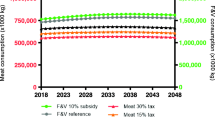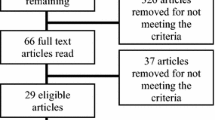Abstract
Advocates of eating locally offer a wide range of arguments in favor of the practice, but their ethical import is not always clear. Some locavore statements and arguments seem to imply a strong form of moral obligation; that eating locally is not merely instrumental to some other good, but has intrinsic value in its own right. This article examines standard arguments on behalf of eating locally, including arguments linked to the value of small farms and agrarianism, the environment, taste and health, trust, and relational markets. Most arguments put forward on behalf of eating locally value it instrumentally, the main exception being arguments based on relational markets. Although these arguments provide important motives for eating locally, the strength of obligation varies widely, and even the strongest arguments possess significant qualifications. While eating locally can play a role in reducing environmental impacts, this is not necessarily so, and once removed from instrumental considerations, eating locally is more likely at best an imperfect duty.
Similar content being viewed by others
Notes
For example, McKibben (2007, 89) declares our expectation for food to be so cheap to be the deepest problem for local-food efforts.
Pollan emphasizes the fact that it can take more energy to bring the food to market than there exists in the food, and that in highly processed foods the ratio of input to food output in terms of calories may be as high as ten to one (p. 88). The implication seems to be that there is something intrinsically wrong with investing more calories in food than there is in the food, but this would be true only if the input is unsustainable. In the case of fossil fuels for large populations, it is. But if another fuel source were used, the problem would disappear. Further, eating local by itself will not cause this problem to disappear, since much of the energy use does not involve transport.
Mason and Singer seem to rely here on figures from http://www.sustainweb.org/.
I thank an anonymous reviewer for raising this point.
References
Berry, W. (1997). The unsettling of America: Culture & agriculture. San Francisco: Sierra Club Books.
Berry, W. (2009). Bringing it to the table: On farming and food. Berkeley: Counterpoint.
Brown, L. (2009). Plan B 4.0: Mobilizing to save civilization. New York: W. W. Norton.
Cone, R. A., & Martin, E. (1998). Corporeal flows: The immune system, global economies of food, and new implications for health. In P. A. Treichler, L. Cartwright, & C. Penley (Eds.), The visible woman: Imagining technologies, gender, and science (pp. 321–359). New York: New York University Press.
Delind, L. B. (2006). Of bodies, place, and culture: Re-situating local food. Journal of Agricultural and Environmental Ethics, 19(2), 121–146.
Follett, J. R. (2008). Choosing a food future: Differentiating among alternative food options. Journal of Agricultural and Environmental Ethics, 22(1), 31–51.
Halweil, B. (2004). Eat here: Reclaiming homegrown pleasures in a global supermarket. New York: W.W. Norton.
Kingsolver, B., Hopp, S. L., & Kingsolver, C. (2007). Animal, vegetable, miracle a year of food life. New York: HarperCollins.
MacIntyre, A. (1999). Dependent rational animals: Why human beings need the virtues. Chicago: Open Court.
McKibben, B. (2007). Deep economy: The wealth of communities and the durable future. New York: Henry Holt and Company.
Nussbaum, M. (2011). Creating capabilities: The human development approach. Cambridge, MA: Belknap Press.
Pirog, R. (2001). Food, fuel, and freeways: An Iowa perspective on how far food travels, fuel usage, and greenhouse gas emissions. http://www.leopold.iastate.edu/pubs-and-papers/2001-06-food-fuel-freeways.
Pollan, M. (2006). The omnivore’s dilemma: A natural history of four meals. New York: Penguin.
Roosevelt, M. (2006) Local-food movement: The lure of the 100-mile diet. Time. http://www.time.com/time/magazine/article/0,9171,1200783,00.html.
Satterthwaite, D. (2011). How urban societies can adapt to resource shortage and climate change. Philosophical Transactions of the Royal Society A: Mathematical, Physical and Engineering Sciences, 369(1942), 1762–1783.
Singer, P., & Mason, J. (2006). The ethics of what we eat: Why our food choices matter. Emmaus, PA: Rodale.
Thompson, P. B. (2010). The agrarian vision: Sustainability and environmental ethics. Lexington, KY: The University Press of Kentucky.
Weber, C. L., & Matthews, H. S. (2008). Food-miles and the relative climate impacts of food choices in the United States. Environmental Science and Technology, 42(10), 3508–3513.
Author information
Authors and Affiliations
Corresponding author
Rights and permissions
About this article
Cite this article
Peterson, G.R. Is Eating Locally a Moral Obligation?. J Agric Environ Ethics 26, 421–437 (2013). https://doi.org/10.1007/s10806-012-9397-8
Accepted:
Published:
Issue Date:
DOI: https://doi.org/10.1007/s10806-012-9397-8




